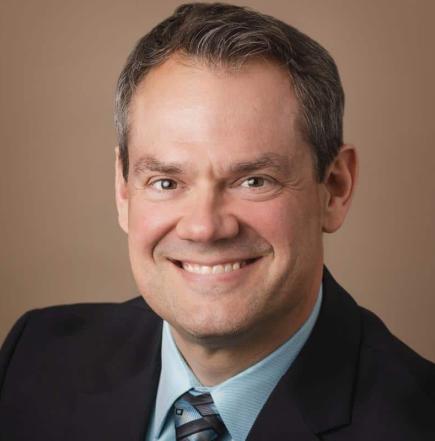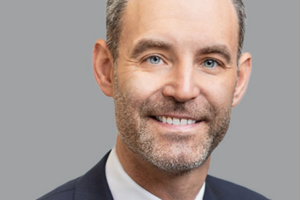
From communication tips to empowering staff, Dr. Michael Cymbor shares his top strategies on how to grow your new contact lens wearing patient base.
For eye care professionals (ECPs), contact lenses provide a vital source of revenue for the practice while also offering clear vision and other benefits for patients which can improve their lives.1,2,3
Despite the benefits of contact lenses for both practices and patients, a recent survey found ECPs missed opportunities to discuss contact lens options with as many as two out of every three of their patients.4,5
Dr. Michael Cymbor, OD, FAAO, of Nittany Eye Associates, shares how ECPs can grow their contact lens business by prescribing to more new wearers.
Adopt the Mindset: All Patients are Potential Contact Lens Wearers
For Dr. Cymbor, almost every patient is a contact lens candidate.
“However, some patients who have astigmatism or have undergone surgical eye procedures may automatically default to the mindset that they can’t wear contact lenses,” Dr. Cymbor says. “That’s why it’s important to bring up the contact lens option during the visit,” he adds.
“It’s rare to find a patient who isn’t a good candidate for contact lens wear,” Dr. Cymbor notes.
Nittany Eye Associates includes a dry eye institute in which some patients’ dryness is so severe, contact lenses aren’t an option. “But those cases are few and far between,” he adds.
Communicate the Opportunity to All Candidates
Nittany Eye Associates encompasses five offices, with 12 optometrists and one ophthalmologist. Dr. Cymbor believes what sets his practice apart is its culture in which all the technicians, doctors, and staff make it a point to communicate with patients throughout their visit.
As part of this commitment, Dr. Cymbor dedicates a few minutes at the beginning of every exam to understand what’s important to each individual patient.
“If contact lenses are part of that, then we make sure the patient doesn’t leave without a set of contact lenses, even if they are there for a completely different reason,” he says.
If a patient is there for a spectacle lens appointment, Dr. Cymbor will bring up the potential of contact lenses. “I’ll say, ‘You may have never thought about wearing contact lenses before, but you should consider it.”’
Break Preconceived Ideas About Contact Lens Wear
A vast majority of Dr. Cymbor’s patients go into contact lens wear with the mindset that they are going to be successful, he says.
If a patient has any confusion about contact lenses or whether they are a viable candidate, Dr. Cymbor and his team will demystify and clarify any misconceptions.
“If a patient comes in and says, ‘I had a friend who tried contact lenses, but it didn’t work, and I don’t think it will work for me,’ we explain, ‘That was atypical. We’re not to trying to push you one way or the other, but in our practice, the vast majority of patients are successful with contact lenses, and we think you will be too,’” Dr. Cymbor explains.
Empower Staff to Lay the Groundwork
At Nittany Eye Associates, staff and ophthalmic techs initiate the contact lens discussions from the onset.
This communication starts when the patient makes an appointment. In addition to an online appointment platform, Nittany Eye Associates operates a call center. Whether a patient is filling out initial paperwork online or speaking with a call center representative, they are asked about the purpose of the appointment and whether they are interested in contact lenses.
These early interactions not only educate the patient on their potential treatment options, but this approach can also help with scheduling flow, since a patient’s visit will be slightly different if they are there for a contact lens appointment, Dr. Cymbor says. “It’s good to identify that right out of the gate.”
Techs also play a vital role in the contact lens discussion and especially during pretesting.
Dr. Cymbor shares a typical conversation a tech would have with a patient during workup at his practice: “We do really well with contact lenses here. Is that something of interest to you? A vast majority of our new fits are daily disposables, so the doctor will probably discuss this option with you.”
“Having those conversations ahead of time are so important,” Dr. Cymbor continues.
Let Patients Test Drive Trial Lenses
If a patient expresses interests in contact lenses or has been identified as a candidate during the exam, it’s important to strike while the iron is hot, Dr. Cymbor suggests.
In these instances, it’s key to recognize that patients are busy, and the practice should make the segway into contact lens wear as easy as possible for them.
“We’d rather not make our patients come back for multiple appointments, so we try to make it as convenient for them as possible.”
In this effort, Nittany Eye Associates keeps a robust supply of trial lenses in-house.
“Once we teach them I&R, 95% of patients can walk out of our practice, the same day, wearing new lenses,” he adds.
Remember Contact Lenses’ Value to the Practice and the Patient
Dr. Cymbor says he’s a big proponent of optometry embracing the medical model, which is a focus for him and his practice.
“But contact lenses are still hugely important for patients,” he explains. “As a practitioner, I want to solve any concerns our patients have and offer them different solutions. Even though the profession is becoming more medically oriented, it’s still important to remember that contact lenses are tremendously important to the patient, and they will remain an important revenue source for our practice.”
He adds, “Don’t allow candidates to leave without discussing the opportunity of contact lenses. Our practice is big on eye disease, glasses, and we’re big on refractive surgery, but we’re also big on contact lenses. There are many patients who don’t even realize they’re candidates.”
Dr. Michael Cymbor, OD, FAAO, is a clinician at Nittany Eye Associates in State College, PA. He lectures frequently on the topics of glaucoma and advanced diagnostic procedures. He also speaks on diabetic retinopathy, macular degeneration, dry eye, and ocular surface disease. Dr. Cymbor is a managing partner in one of the largest optometric practices in the country, and he directly oversees a contact lens department that generates a million dollars plus per year.
1. Walline JJ, Jones LA, Sinnott L, et al. Randomized trial of the effect of contact lens wear on self-perception in children. Optometry and Vision Science. 2009;86(3):222-232.
2. Coates ZA. Contact Lens, Academics, and Self-Perception (CLASP) Study: Study Design and Initial Results. The Ohio State University; 2019. http://rave.ohiolink.edu/etdc/view?acc_num=osu1554753474788361
3. Zeri F, Pitzalis S, Di Vizio A, et al. Refractive error and vision correction in a general sports-playing population. Clin Exp Optom. Mar 2018;101(2):225-236. doi:10.1111/cxo.12626
4. Contact Lens Institute, https://www.contactlensinstitute.org/
5. Missed opportunities? Contact lens experts weigh in on gaps in consumer knowledge American Optometric Association. Oct. 17, 2022. https://www.aoa.org/news/clinical-eye-care/diseases-and-conditions/contact-lens-experts-weigh-in-on-gaps-in-consumer-knowledge?sso=y








